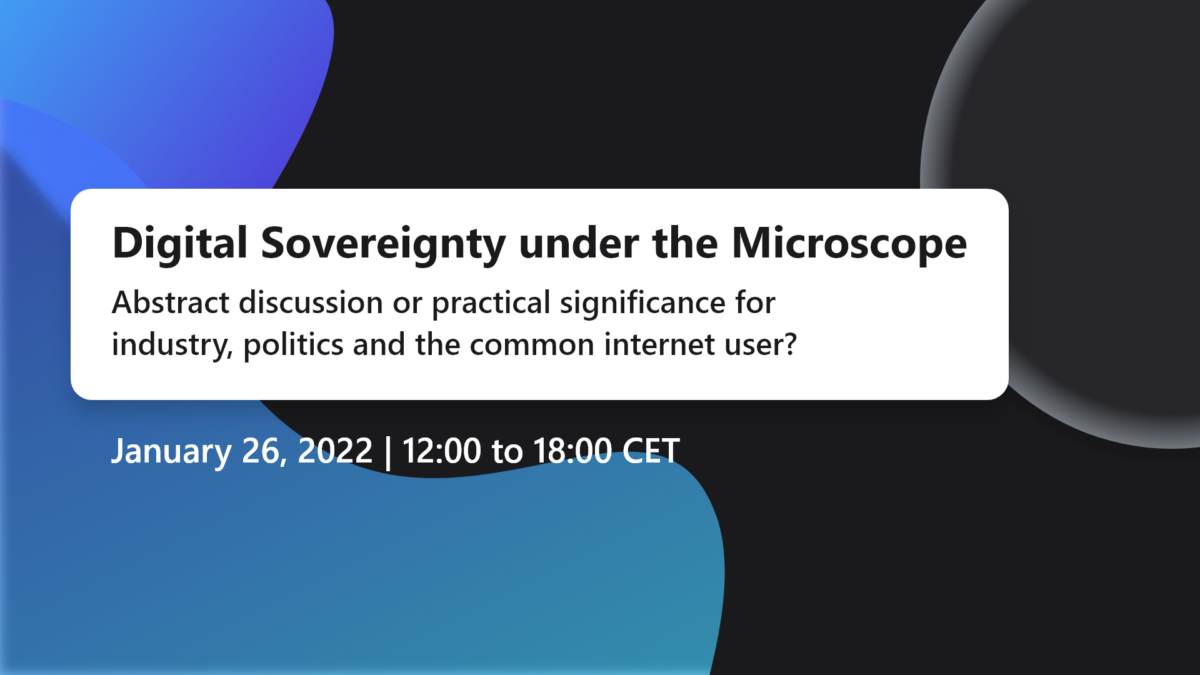January 26, 2022
Digital Sovereignty under the Microscope
Abstract discussion or practical significance for industry, politics and the common internet user?
National sovereignty has always been a buzzword when political or social changes are pending. In the wind shadow of this term, the buzzword “digital sovereignty” has gained momentum and has meanwhile become a complex in its own right. What is striking in the analysis, however, is that not only is the term “digital” vague and ambiguous, but the compound term “digital sovereignty” has gained even more ambiguity. From “the ability to use digital media in a self-determined manner” (Wikipedia) to “the sum of all abilities and possibilities of individuals and institutions to be able to exercise their role in the digital world in an independent, self-determined and secure manner” (GI) are two of countless attempts at definitions. According to the Konrad Adenauer Foundation, the term is still neither clearly defined nor operationalised.
In the upcoming expert roundtable of the German ict + medienakademie we want to at least touch on the various options, and in any case not leave out the technological perspective, especially on microelectronics and hardware, on software and services.
This discussion is framed by two selected complexes of framework conditions, on the one hand the technical standards for the digital world, both conventional and new approaches such as GAIA-X and Data Spaces. On the other hand, the necessary but only more or less existing competences will also be illuminated, to which reference is always readily made when it comes to sovereignty – what do users know, but what do they do, what is the bottom line with security and data protection.
Dr André T. Nemat, one of the IDSA board members, will also give a presentation there at 14:45.
Register here: medienakademie-koeln.de (Please note that the event is in German)
Date/Time
Date(s): January 26, 2022
12:00 pm - 6:00 pm UTC+1



